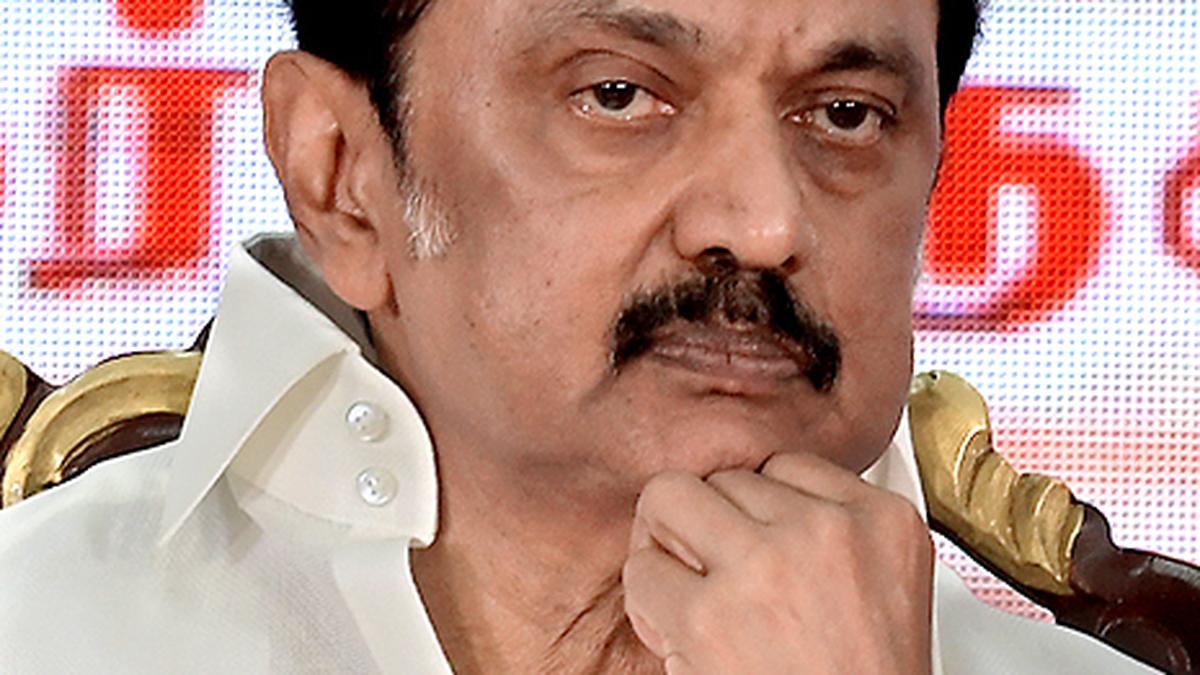 |
|
The recent political discourse in India has been punctuated by a heated exchange regarding the legacy and invocation of B.R. Ambedkar, a towering figure in Indian history and the architect of the Indian Constitution. The controversy ignited with a statement made by Union Home Minister Amit Shah in the Rajya Sabha, where he commented on the frequent mention of Ambedkar's name by the opposition, suggesting it was a mere 'fashion' and implying a lack of genuine commitment to Ambedkar's ideals. This remark immediately sparked a firestorm of criticism, particularly from the opposition parties. The context of Shah's statement was his response to a debate on the Constitution, highlighting the complex interplay between constitutional interpretation and political maneuvering.
Tamil Nadu Chief Minister M.K. Stalin, a prominent figure in the opposition, responded sharply to Shah's statement, asserting that only those genuinely committed to the country, its people, and the Constitution's principles would invoke Ambedkar's name with sincerity. Stalin's response was not merely a rebuttal but a pointed assertion of his own commitment to Ambedkar's vision and a condemnation of what he perceived as a cynical instrumentalization of Ambedkar's legacy for political gain. He further amplified his criticism on social media, suggesting that those who express concern about virtue are often those who have the most to hide, thereby implying that Shah's remarks were hypocritical.
The exchange between Shah and Stalin reflects a deeper political divide concerning the interpretation and application of Ambedkar's ideals. While both sides claim to champion Ambedkar's legacy, their approaches diverge significantly. Shah's comments can be seen as an attempt to either dismiss or co-opt the opposition's use of Ambedkar's name as a political tool, suggesting it lacks genuine conviction. Alternatively, it could be construed as an attempt to shift the narrative away from critiques of the ruling party's policies and actions. Stalin’s response, on the other hand, underscores the importance of upholding Ambedkar’s values and criticizes what he views as a politically motivated distortion of Ambedkar’s legacy.
This incident highlights the complex relationship between political discourse and the appropriation of historical figures. Ambedkar's legacy transcends party lines, representing a powerful symbol of social justice and constitutional values. His name is often invoked by different political factions to strengthen their arguments or bolster their credibility. This instance underscores the risk of such invocations being reduced to mere political rhetoric, potentially diluting the profound significance of Ambedkar’s contributions to Indian democracy. The debate extends beyond the immediate political exchange, prompting a wider discussion on the ethical implications of using historical figures as political symbols and the importance of preserving the integrity of their legacy.
The controversy surrounding Ambedkar’s name also raises questions about the role of political rhetoric in shaping public opinion and the responsibility of political leaders to engage in respectful dialogue. The use of strong and even accusatory language, as witnessed in this instance, contributes to the polarization of the political landscape and hinders meaningful discussion of critical issues. It underscores the need for more nuanced and less confrontational approaches to political debate, fostering a more inclusive and productive environment for addressing critical national concerns. The incident serves as a cautionary tale about the potential pitfalls of reducing complex historical figures to mere political tools, undermining their true significance and fostering a culture of divisive rhetoric.
In conclusion, the exchange between Shah and Stalin highlights a deeper tension in Indian politics—a struggle over the interpretation and utilization of Ambedkar’s legacy for political ends. Both sides claim adherence to Ambedkar's ideals, but their actions and rhetoric reveal differing priorities and understandings of his contributions. This incident necessitates a critical examination of the role of historical figures in contemporary political discourse and the importance of respectful engagement with profound national symbols, moving beyond rhetoric to meaningful action that aligns with the values they represent.
Source: Only those who care about the country will use Ambedkar’s name: Stalin
